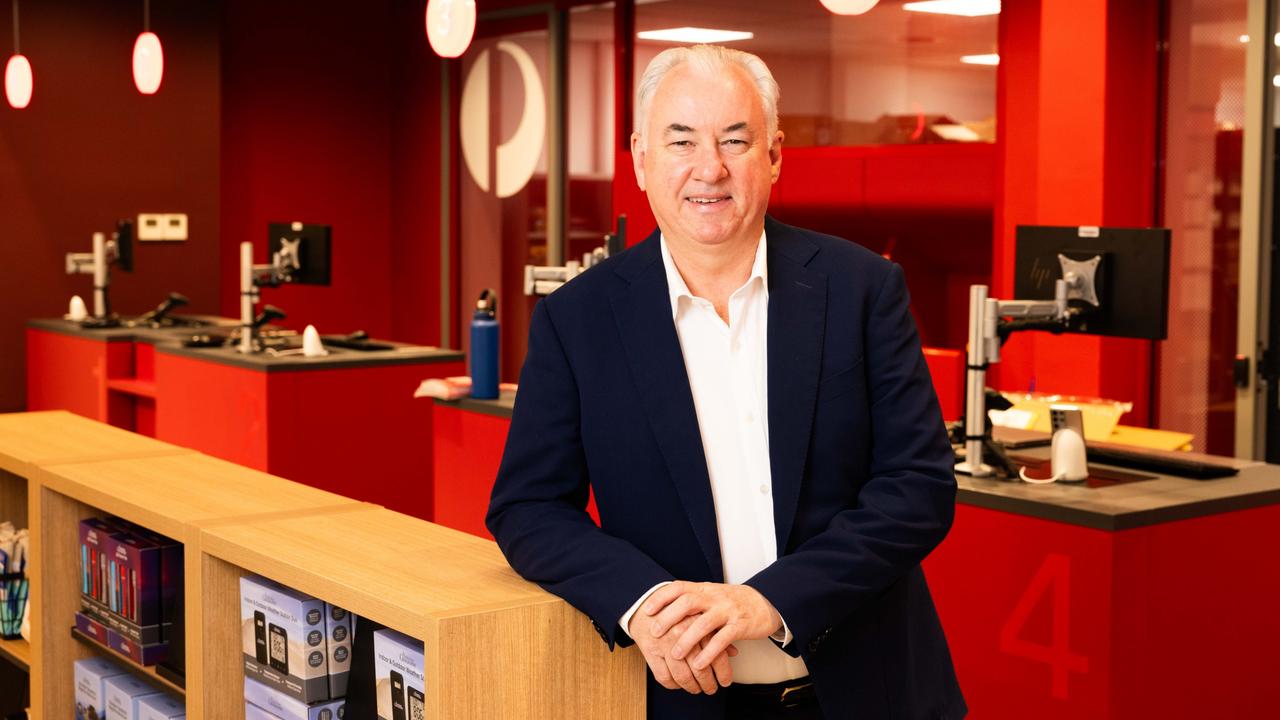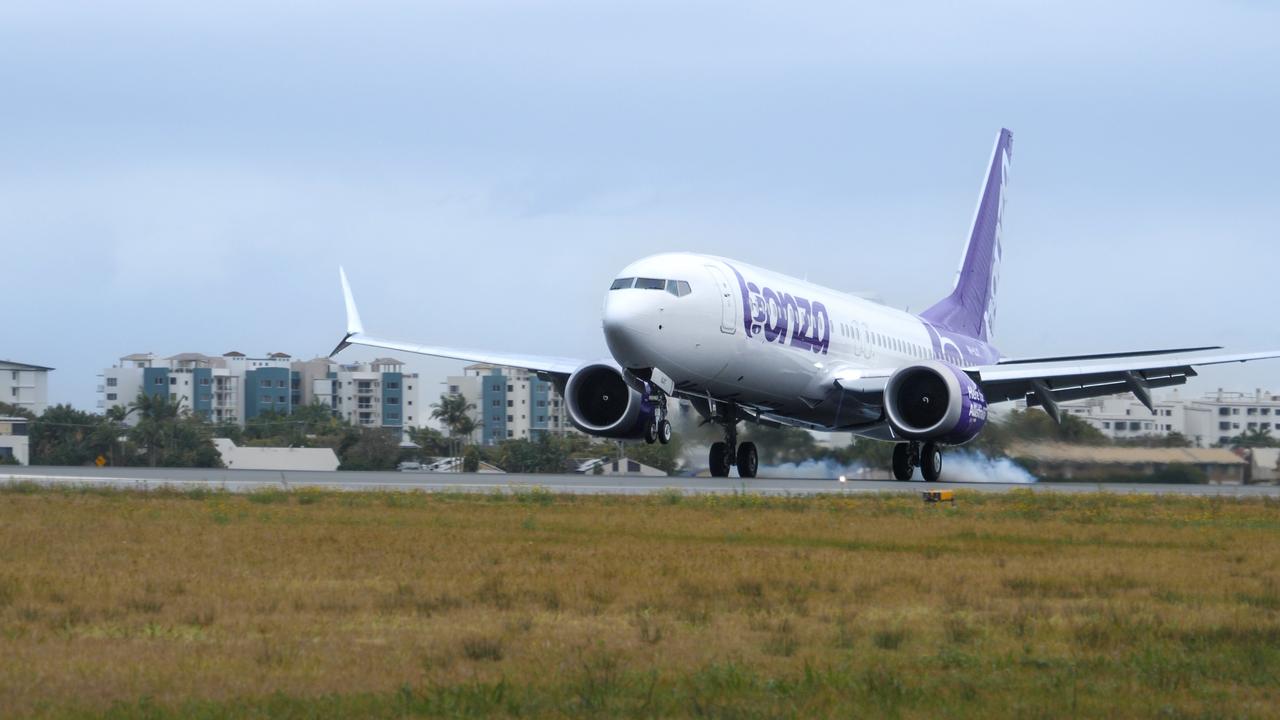Metcash says Australian shoppers chasing value amid $282.3m underlying profit
Metcash, which services more than 1600 IGA, Ritchies and Foodland stores across the country, says households are switching up the weekly grocery shop to combat higher living expenses.
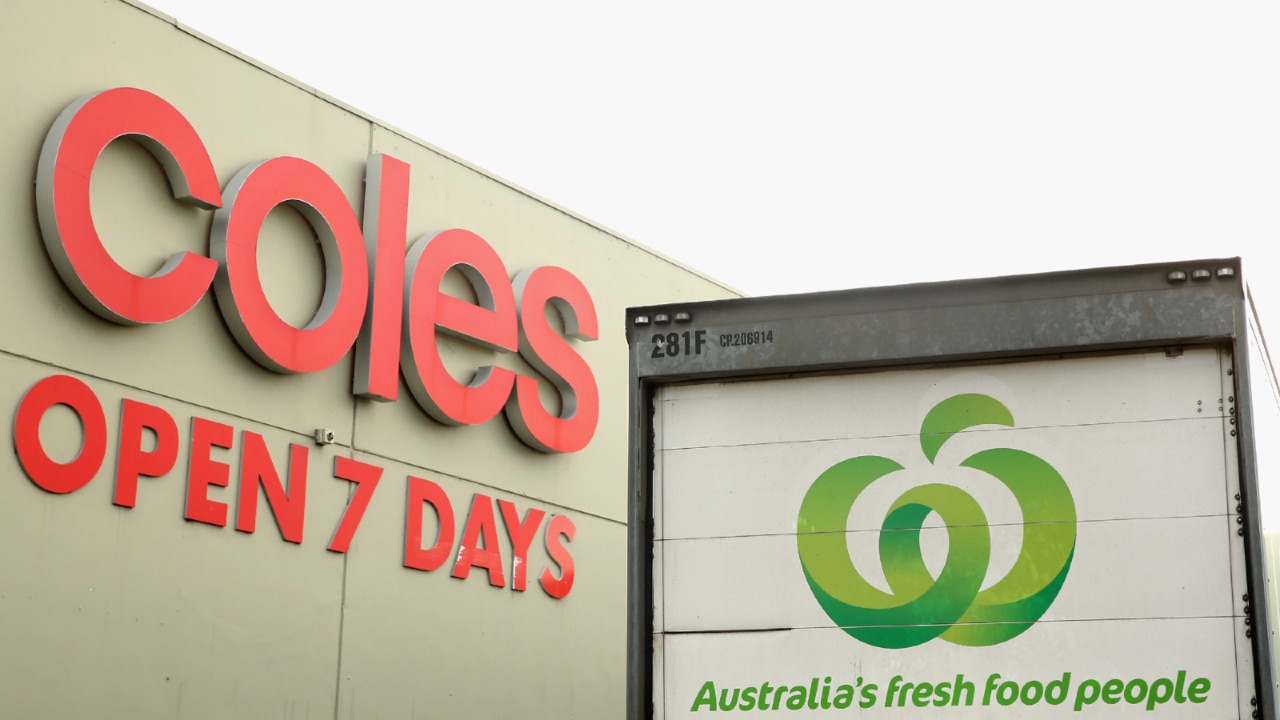
Business
Don't miss out on the headlines from Business. Followed categories will be added to My News.
Shoppers are making smaller, more frequent grocery shops and are opting for private labels and weekly promotions to combat prolonged cost of living pressures, according to Metcash boss Doug Jones.
The sluggish economic environment has played into the hands of Metcash’s sustainable and resilient business model, Mr Jones said, with higher foot traffic and sales reported despite small baskets being purchased.
Mr Jones, whose wholesaler sells into 1600 independent supermarkets such as IGA, Foodland and Ritchies, plus liquor outlets like Cellarbrations and hardware stores led by Mitre 10, said shoppers have embraced independent outlets and the value proposition on offer.
“Foot traffic, or total baskets, remains in growth, and it says that customers continue to see value in having IGA and our other independent customers in their repertoire of source, so they’re not leaving en masse as some naysayers thought would happen,” he said.
“In the last five years since Covid, Australians have rediscovered local independent stores, and they’ve stuck around. We’ve been saying since early 2022 when things started to normalise that the quality of our proposition and competitiveness and relevance resonates.”
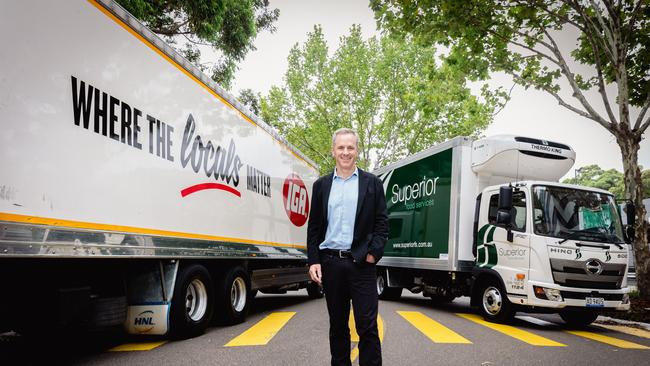
Metcash on Monday reported a 8.2 per cent decrease in group underlying profit to $282.3m for the 2024 fiscal year. Profit slid on increased finance costs and lower earnings in the hardware pillar, which was impacted by regulatory costs, increased labour expenses and other cost inflation in construction.
Underlying earnings before interest and tax slipped 0.9 per cent to $496.3m — 2 per cent better than markets had expected. Food earnings rose 3 per cent to $210.1m. Mr Jones said Metcash had seen private label sale lift 16 per cent, strong demand for specials, and it was also benefiting from households dining out less.
“Demand for private labels is up right across the store. (Consumers) are also shopping the tickets, and the specials, but we’re not seeing a fundamental shift at a category level as we had last year when people went from fresh to frozen because of high inflation,” he said.
“As people eat out less they are looking to replace that with a nice meal at home and look for things in the supermarket that cost less than a restaurant’s meal, but still provide their family with an interesting and affordable option,” he said.
Wholesale sales excluding tobacco were up 4.7 per cent, underpinned by further improvement in network competitiveness and inflation. Metcash opened a record 26 new IGA stores in the past fiscal year and closed 15.
Mr Jones said while shoppers wanted value, he did not expect that there would be a “black and white” reversion to old habits once cost of living pressures eased.
“I’ve never been a believer that, that you’re in a value period, or you’re not, and people fundamentally change their habits. Customers always want value,” he said.
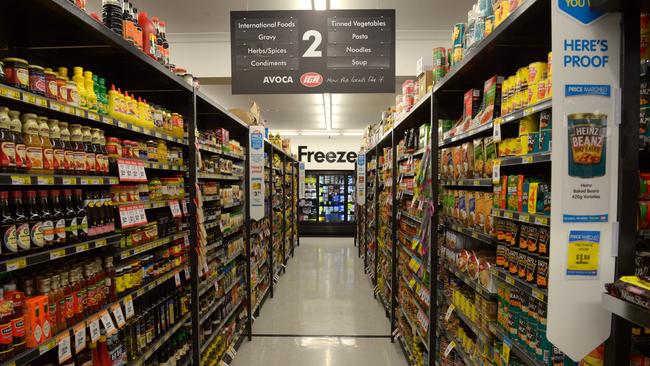
“The reality is that in tougher times, they will skew more towards private labels, they’ll buy less, shop more frequently, and over time that will revert towards the longer term trends.”
Hardware EBIT fell 3.8 per cent to $210.9m, with both IHG and Total Tools delivering lower earnings compared to last year, amid macroeconomic factors in the construction sector. In professional tools, Metcash said there are signs of some abatement to the intense pricing pressure seen in recent months.
Group sales for the first seven weeks of fiscal year 2025 increased 2.2 per cent, and were flat excluding superior foods, which have been included in Metcash sales from the date of acquisition, while it also aimed to deliver $15m in cost savings.
Citi analyst Adrian Lemme said the first seven weeks of its 2025 fiscal year showed continued softness in food sales and weaker hardware sales.
“We think the market will like the earnings beat in Food and Liquor, however the trading outlook suggests a challenging start to fiscal year 2025 relative to our forecasts,” he said.
Mr Jones said any measures designed to ease pressure on consumers such as the stage three tax cuts from next week and the hopes that the Reserve Bank could begin to cut rates from last 2024, early 2025 would benefit Metcash.
“Any easing of pressure on consumers and more disposable income is going to be good for our portfolio, which is really well-balanced on providing the essential items for everyday living, as well as DIY and construction or building projects,” he said.
Metcash declared a final dividend of 8.5c a share fully franked, bringing total dividends for the year to 19.5c per share, fully franked. That’s down 13 per cent from last year.
Shares in Metcash fell 2.4 per cent to $3.69 in a lower market on Monday.
Originally published as Metcash says Australian shoppers chasing value amid $282.3m underlying profit


